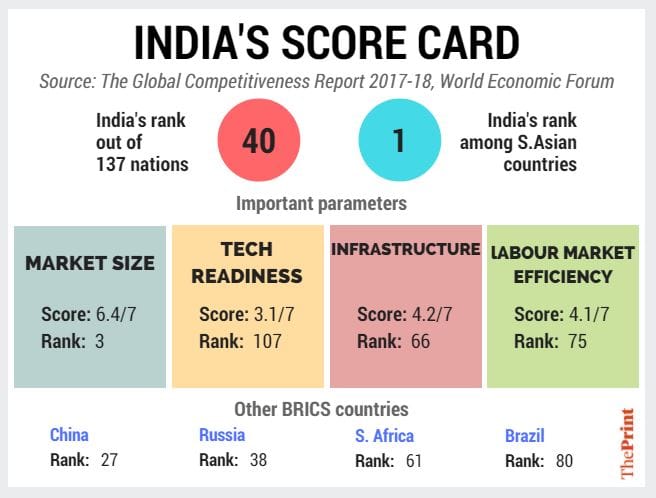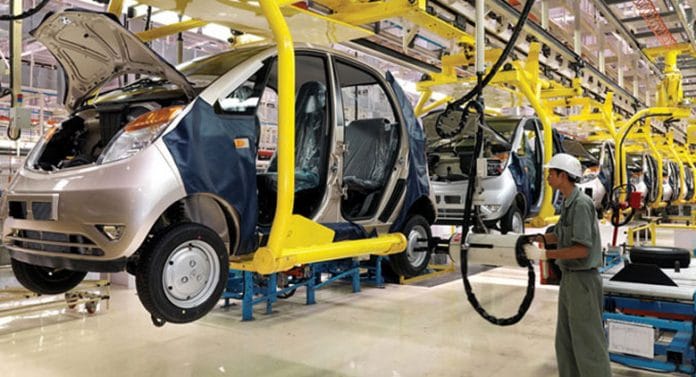India is the top-ranked economy in South Asia, 3rd among BRICS countries, and has improved in infrastructure, higher education, and labour market efficiency.
India is still at the top table among global economies, according to the World Economic Forum’s Global Competitiveness Index (GCI) 2017-18. India ranks 40th among 137 countries this year and although it is one position lower than last year, experts say there are encouraging signs about the country’s economic progress.
GCI measures the factors that are crucial to future productivity and prosperity of countries. The report highlights how 10 years after the 2008 global crisis the financial sector is still vulnerable and unprepared for the next wave of innovation and automation.
Parameters and performance
GCI scores are calculated on the basis of 12 categories called ‘pillars of competitiveness’, which include parameters like institutions, infrastructure, health and primary education, labour market efficiency, financial market development, technological readiness and market size.
Switzerland, United States, and Singapore continue to be the world’s top three competitive economies, while China (27th) and Russia (38th) outshine India among the BRICS group of large emerging markets.

India, however, is the top South Asian country in the index, even though most countries in the region have been progressing competitively. Its one-position slip compared to last year is due to a stabilisation period, since in the previous two years, it had made a massive leap of 32 positions in the index.
India’s scores have improved in most pillars of competitiveness, including infrastructure, higher education, and efficiency in the labour market.
In terms of technological readiness, the country has improved by three positions. However, India is a labour intensive country, and is thus resistant to adopting tech advancements like automation and robotisation. This is a key hindrance to its productive capacity, and even this three-position jump can only take it up to 107th.
Major issues
The report also highlights how corruption, access to financing and tax regulations remain problematic factors for doing business in India. “The quality of institutions has increased further, especially in terms of efficiency of public spending (20th), but the private sector still considers corruption to be the most problematic factor for doing business in India,” it says.
In fact, the new GST tax regime brought in this year has been designed to tackle the ‘tax regulations’ problem, though a lot will depend on its effective implementation.
‘The age of talentism’
Klaus Schwab, founder and executive chairman of the World Economic Forum, had this to say on the need for skill development for countries: “Global competitiveness will be more and more defined by the innovative capacity of a country. Talents will become increasingly more important than capital, and therefore, the world is moving from the age of capitalism into the age of talentism.”
As the global economy finds itself on the cusp of a ‘fourth industrial revolution’, these concerns highlight the importance of strengthening the financial system for facilitating innovation.
“Countries preparing for the Fourth Industrial Revolution and simultaneously strengthening their political, economic and social systems will be the winners in the competitive race of the future,” said Schwab.
This means the time has come for India to ready itself to adopt technological advancement.






